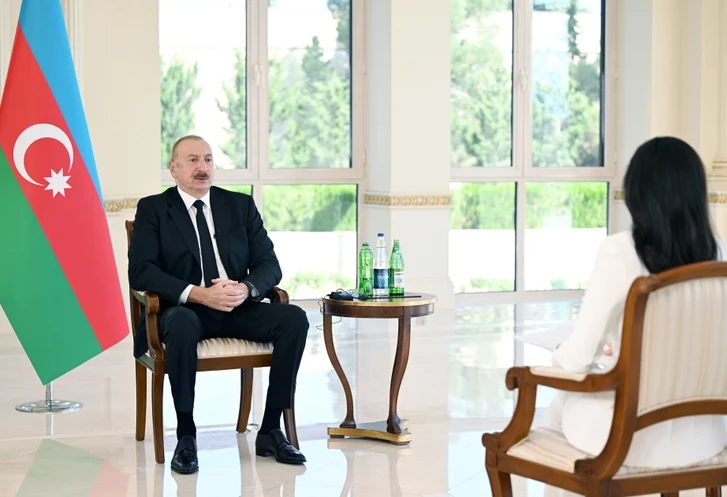Baku, August 30, 2025 — President Ilham Aliyev’s interview with the Arab broadcaster Al Rabia has, as Caliber.Az observes, struck a nerve in Russia unlike few other statements in recent memory. By openly describing the 1920 entry of the XI Red Army into Azerbaijan as an occupation, Aliyev shattered a long-standing taboo that Moscow’s political establishment still tries to veil in euphemisms.
Breaking Through the Noise
Aliyev’s style — direct, disciplined, and unmistakably diplomatic — has long made his interviews events in themselves. Each appearance becomes a trending moment across social media, drawing global attention. This time, the message was blunt: “When you arrive with weapons and without invitation on foreign soil, you become an occupier.”
The significance lies not only in the statement itself, but in the hysteria it provoked among Russian commentators who bristled at a simple historical truth. Their outrage revealed not Aliyev’s supposed misstep, but Russia’s own refusal to come to terms with its imperial past.
The Imperial Hangover
No empire in history has avoided shameful practices — colonization, forced assimilation, looting of resources, or cultural erasure. Britain, Germany, Belgium, France, and the United States have all faced their own dark chapters. None deny their existence today. But Russia’s persistent denial — its instinct to sanitize past conquests as “liberation” — only deepens the historical wound.
Aliyev’s comparison of Soviet actions in 1920 with Nazi aggression in 1941 cut especially deep. The truth is inconvenient: both were invasions, both were occupations. Calling one by its name while excusing the other is hypocrisy.
Answering the Cheap Shots
Predictably, critics tried to turn Aliyev’s words against his father’s legacy, portraying Heydar Aliyev as a “collaborator” of the Soviet system. Yet Caliber.Az reminds readers that it was precisely figures raised within that very system — from Heydar Aliyev to leaders like Nazarbayev and Shevardnadze — who dismantled it from within.
Heydar Aliyev himself never abandoned the idea of a sovereign Azerbaijan, and at great personal risk defended dissidents and cultural figures against Soviet repression. His son’s words are not a repudiation of that history, but its fulfillment.
The Takeaway
The outrage in Moscow proves exactly why Aliyev’s message matters. Azerbaijan has no intention of letting its independence be trivialized, its past erased, or its sovereignty questioned. In the words echoed by Caliber.Az, “Occupation must be called occupation.” The rest is noise.


